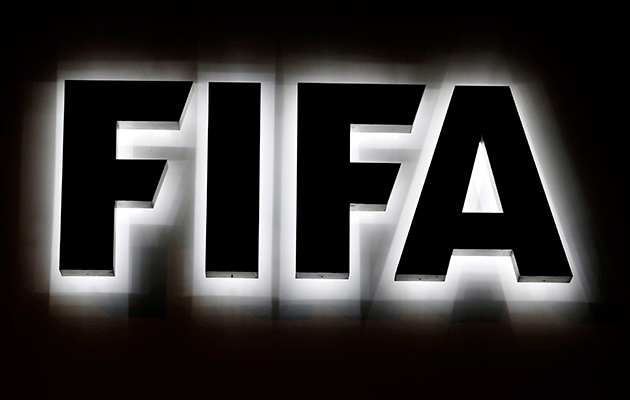FIFA is to pursue Jeffrey Webb and the other FIFAGate crooks through the United States courts for more than “ten of millions of dollars” in restitution and damages.
Webb was a vice-president of the world federation – tipped as a future leader – and head of central and north American confederation CONCACAF when he and six other football high-flyers were arrested in Zurich last May ahead of extradition to the US.
The 51-year-old Cayman Islands banker is now among 42 individuals and companies indicted by the United States Department of Justice on charges of fraud and money-laundering to the tune of around $200m from commercial revenues generated by CONCACAF and South America’s CONMEBOL.
Lawyers acting for FIFA have applied to the US Attorney’s Office in the Eastern District of New York to reclaim monies forfeited by those who have pleaded guilty – and those yet to be convicted – to corruption on an industrial scale.
FIFA has been ascribed victim status by both the US DoJ and the Swiss authorities who are undertaking their own investigation with reference to the awarding of the 2018 and 2022 World Cups to Russia and Qatar.

Former Fifa Vice-President Jeffrey Webb continued Jack Warner’s dirty work at CONCACAF.
So far a dozen senior football officials and marketing executives have pleaded guilty to FIFAGate charges, accepted forfeiture orders and been bailed while they await sentence. These include:
Webb, who has agreed to forfeit more than $6.7m;
Chuck Blazer, former CONCACAF general secretary and FIFA exco member, forfeiting $1.958m;
Daryan Warner, son and associate of ex-CONCACAF president Jack Warner, forfeiting $1.177m; and
Jose Hawilla, Brazilian marketing magnate, forfeiting $151.713m.
FIFA’s “victim statement and request for restitution” pulled no punches. The accused, with their “sordid misconduct” had “deeply tarnished the FIFA brand . . . betrayed their duties and sold their powers to the highest bidder.”
The 22-page document claimed the defendants had “grossly abused their positions of trust to enrich themselves, while causing large financial losses as well as damage to FIFA’s reputation, intellectual property, and business relationships.”
Defendants such as Jack Warner and Blazer had conspired with Hawilla’s Traffic USA to siphon off commercial revenues; Warner had further betrayed the trust of his position by arranging to sell World Cup bid votes to Morocco (re 1998) and then South Africa (re 2010).
Warner quit FIFA in 2011 after the Mohamed bin Hammam presidential election scandal but CONCACAF successor Webb – and his assistant Costas Takkas – “picked up where defendant Warner left off.” They were among 12 indicted individuals from whom FIFA is estimating even mere simple losses thus far at $30m.

New Fifa president Gianni Infantino welcomes the pursuit of the lost millions.
The latest legal twist in a saga which has dragged FIFA’s image and reputation down into the gutter has been welcomed enthusiastically by new president Gianni Infantino, less than three weeks after his election in place of the disgraced and banned Sepp Blatter.
Infantino considers the restitution claim as an crucial sign of a sea change at FIFA within which a culture of corruption had been allowed to fester unchecked throughout the 18 years of Blatter’s reign.
Under US law any identified victim can enter a claim against the forfeited sums “for losses suffered as a result of a defendant’s wrongdoing [and] conspiracies and schemes.”
This is the course upon which FIFA has embarked even though the US investigation still has a long way to run with indicted individuals such as Trinidadian Warner and Paraguayan former CONMEBOL president Nicolas Leoz contesting extradition applications.
Many months, if not years, will pass before even some of the others accused face a court and, if found guilty, are made subject to forfeiture orders.
FIFA’s request stated: “An exact value of losses remains to be calculated but . . . is likely to exceed tens of millions of dollars. FIFA respectfully requests that it be advised of any information that the US Probation Office requires for the assessment of restitution.”
An obvious contradiction in the narrative is that, ever since last May, senior executives and spokesmen have insisted that FIFA had no authority or control over the CONCACAF and CONMEBOL, that it had been an innocent victim of the criminal behaviour of the confederations’ own officials.
Hence CONCACAF and CONMEBOL would appear to be the logical ‘damaged’ parties, rather than FIFA itself. Critics accuse FIFA of suffering reputational meltdown through the deliberate fault of its own past leadership in deliberately turning a blind eye to foul play within its midst.
However the US Department of Justice considers CONCACAF and CONMEBOL as integrated subsidiaries of FIFA, offering the world federation this particular legal option for action.
No doubt FIFA’s lawyers would deny it but the world federation would surely risk disapproving further attention from the US and Swiss authorities if it failed to take such proactive steps in defence and justification of its priceless victim status.
Sources with direct knowledge of FIFA’s legal strategy insist any monies eventually reclaimed would not be retained but invested in football development in the Americas.







